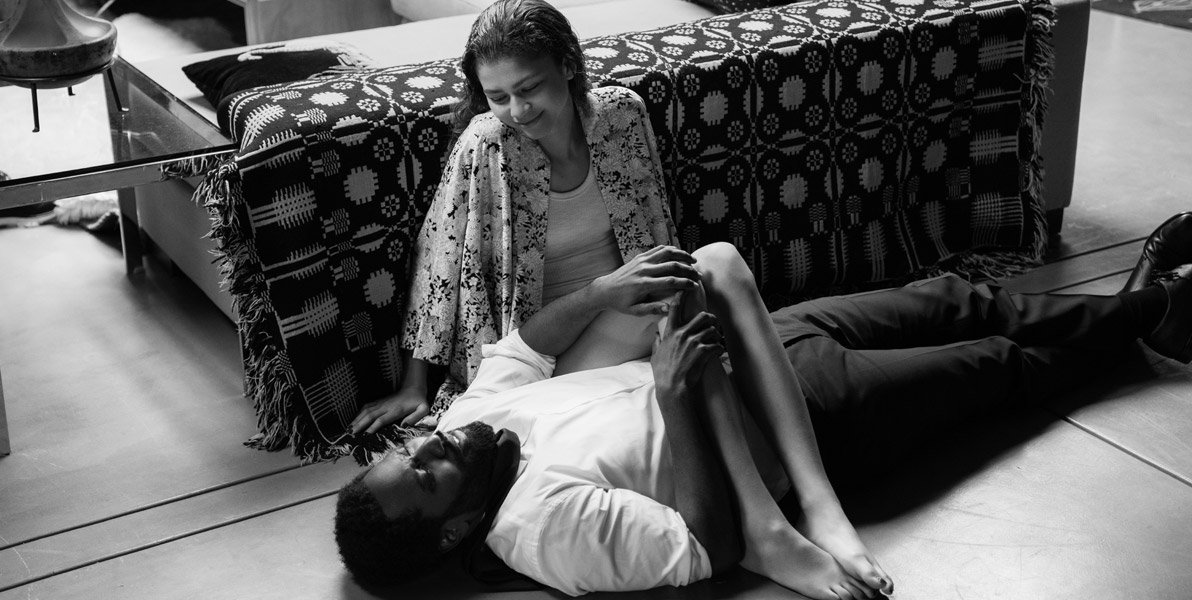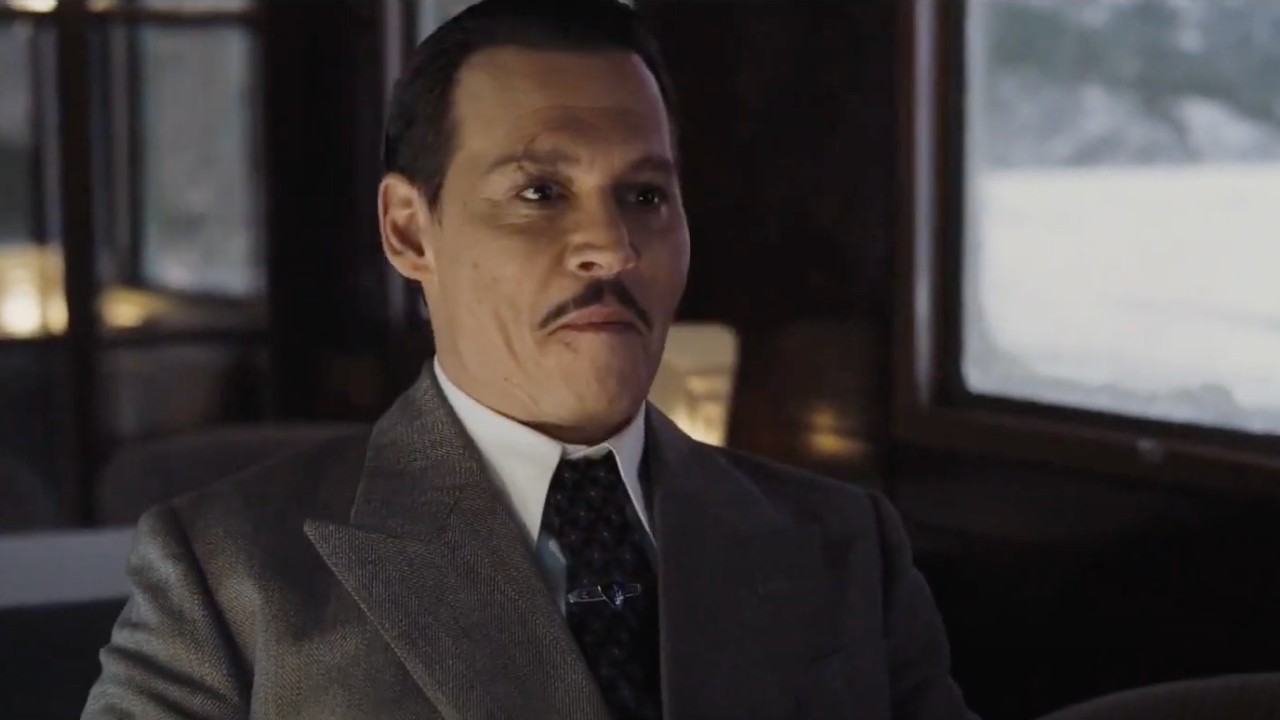When telling a great story, complexity is optional. It can be useful, and proper application can generate wonderful creativity, but it’s not always a necessary part of the equation. Ultimately the principal building blocks are simply character and conflict: you put together a combination of the two, and you have a story. The majority of films we watch obviously go steps beyond that, taking advantage of the great magic in the art form – but, in contrast, it’s always excellent to see a movie like Sam Levinson’s Malcolm And Marie that opts to go the bare bones approach and in doing so can expose the raw, beating heart of drama.
Made in the early months of the pandemic, the movie was seemingly born practically out of a need for minimalism that would allow for a safe production, and emotionally out of the turmoil of the moment, and what has resulted is a compelling and engaging drama that serves as an awesome stage for stars Zendaya and John David Washington. And while it’s a bit over-long and gets structurally hazy at times, it keeps its hooks in you with its leads’ captivating turns and a constant series of revelations and arguments that keep the central relationship evolving and dynamic.
Playing out almost in real time and in one location, Malcolm And Marie begins as its titular couple arrives at their palatial Malibu rental, returning from an exciting movie premiere. Malcolm, a writer/director, is near blissful after having heard universal praise all night for his latest feature – a drama about a 20-year-old woman dealing with drug addiction – and though he finds himself frustrated by the inevitable critical and political parsing of his work (expressed while he manically paces around the living room), his optimism flows.
The feelings are not mutually shared by Marie, however, who begins the late night quietly standing outside a sliding door smoking a cigarette while her boyfriend revels in his success. When the brooding can no longer be ignored, the elephant in the room is finally addressed: she is annoyed with him because of a stupid joke made by one of his friends, and because of a snide comment made by the movie’s lead actress, but mostly she’s upset that he forgot to thank her while addressing the audience.
Without realizing it, together they begin to form a snowball at the top of a staggeringly steep hill. This snub, as it turns out, is just the latest slight adding to the growing resentment Marie has begun to feel towards Malcolm. When they finally begin to pick at what’s going on they get to what is the central issue, which is that she believes that she is the principal inspiration for the central protagonist of the movie, and that her partner has failed to give her the proper appreciation for her contributions. Naturally, bringing this up serves to highlight deeper issues in their relationship, and things spiral out of control from there.
Malcolm And Marie doesn’t need any more than conversation to drive its plot.
Sharing DNA with titles likes Waiting For Godot and My Dinner With Andre, Malcolm & Marie is as stripped down as narrative storytelling gets (even color is taken out of the equation), and it speaks to the sharpness and smart pacing of the script that it’s able to make and keep you invested from moment one. As the conversation flows and evolves we constantly learn more about who these individuals are, adding new layers of depth and perspective, and as exposition-heavy as it has to be by design it always feels organic. The film never provides more information than it has to, which permits it to both be both intimate and personal to the characters, and also natural and universal to the audience.
Malcolm And Marie also frequently mixes up its delivery, ever preventing itself from feeling stale, which not only lends to the movement of the story, but also its passion. The film gets a lot of mileage out of banter, with the characters sniping back and forth, but that’s just one mode. A long stretch of the movie is dedicated to more monologue-driven sequences, with the stars each having the opportunity to perform decimating verbal combo moves, and at one point Marie even chooses to say everything that she wants to say via a specific song choice that she cues up on her phone. It’s a narrative that doesn’t possess a great deal of creative outlets, but it finds them.
While Malcolm And Marie gets a bit messy by the end, character and style keep you invested.
Smart as the pacing is, Malcolm And Marie does suffer an issue as a result of escalation that winds up hampering the final stretch. It’s mostly a movie that plays it smart when it comes to heating things up and then cooling them down, but it hits its peak boiling point (namely during the back-and-forth monologues) too early, and that takes a lot of wind of its sails in the back half. There is an attempt made at compensation that comes through some extremes – including Malcolm going on a hyper and hyperbolic rant about film criticism, and Marie putting on an dramatic display with a knife that I won’t spoil here – but the Netflix feature is never as intense and gripping as when the couple opts to abandon niceties and bear their claws.
Zendaya and John David Washington get to demonstrate the remarkable depths of their dramatic skills.
Of course, one of what Malcolm And Marie attempts works if it doesn’t have the proper actors to bring these claw-bearing leads to life, and Zendaya and John David Washington deliver stunning turns that see them disappear into their performances as their respective characters become deeper and more developed. The aforementioned shifting tones of the story between hot and cool allows both of them individually to demonstrate their impressive range, as opportunities to explore the entire emotional spectrum are offered, but also their powerful chemistry together projects a history from which the movie significantly benefits. Given that they are currently on a trajectory to become two of the biggest stars in the industry, you can expect that their work here will be reflected on a great deal.
Malcolm And Marie is about 15 minutes too long, but an impressive work for a feature that has come together in less than a year, and ultimately a striking showreel piece for all involved – with Zendaya and John David Washington affirming their excellent acting skills, and Sam Levinson further honing his visual style and making what is aesthetically a beautiful film. With all frills removed, it’s a fantastic platform for talent, and it delivers.

Eric Eisenberg is the Assistant Managing Editor at CinemaBlend. After graduating Boston University and earning a bachelor’s degree in journalism, he took a part-time job as a staff writer for CinemaBlend, and after six months was offered the opportunity to move to Los Angeles and take on a newly created West Coast Editor position. Over a decade later, he's continuing to advance his interests and expertise. In addition to conducting filmmaker interviews and contributing to the news and feature content of the site, Eric also oversees the Movie Reviews section, writes the the weekend box office report (published Sundays), and is the site's resident Stephen King expert. He has two King-related columns.
Hacks Season Four Premiere Was Almost Perfect, But I Have A Complaint About Deborah And Ava
Next Summer Is Going To Be All About Tom Holland, And I Need Everyone To Start Coming Up With A Fun Spider-Man Version Of Barbenheimer Now
Everybody Knows Michael Rooker Is Great, And It Kills Me That The Righteous Gemstones Took Four Seasons To Introduce This Stellar Character











